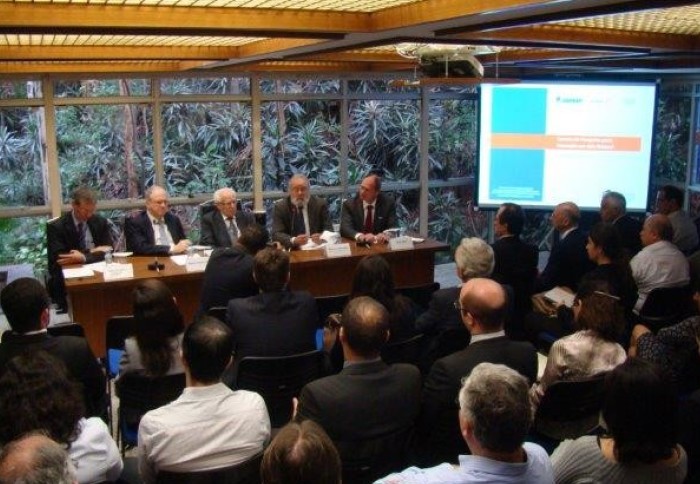Gas Innovation Research Centre launches at the University of São Paulo
by Zara Qadir

FAPESP (São Paulo Research Foundation) and BG Brasil, a BG Group company, announced yesterday the creation of the Gas Innovation Research Centre (GIC)
It will have its headquarters at University of São Paulo (USP).
The Sustainable Gas Institute (SGI) welcomes this ground-breaking collaboration between the United Kingdom and Brazil. FAPESP have invested R$27 million and BG Brasil have invested a further R$30 million.
Together with the Sustainable Gas Institute, GIC will form a world-class centre for excellence for research on the current and future use of natural gas.
The Centre is based at USP’s Polytechnic School and will be coordinated by Julio Meneghini, a professor at Poli/USP and by Alexandre Breda, BG Group’s Environmental Project Manager.
“This initiative was developed in partnership with FAPESP to invest in innovation in order to better understand how we can use natural gas today and in the future. This is an important part of the legacy of BG Brasil for Brazilian academia and industry, which is the first centre dedicated to natural gas research and innovation in Latin America and the Caribbean”, celebrates Julio Meneghini.

The GIC launch: Carlos Henrique de Brito Cruz – Scientific Director Fapesp, Professor Marco Antonio Zago – USP’s Dean, Professor José Goldemberg – President of Fapesp, Ricardo Toledo – Energy Deputy Secretary of São Paulo State, Adam Hillier – CTO – BG Group (from left to right)
Guided by three complementary lines of research: Engineering, Energy Physics-Chemistry and Policy and Economy – the centre will investigate low carbon emission energy generation, the increasing use of natural gas as fuel for ships, the prevention of fugitive emissions of methane gas, advanced combustion of natural gas, use in fuel cells, the conversion of natural gas into raw materials for the chemical industry, and the development of a natural gas supply chain for remote areas, among others.
“Our lines of research will be focused on the use of gas for transportation and other types of utilisation, as well as the finding of new raw materials derived from it”, tells Meneghini.
“Projects can, for example, specifically investigate natural gas reforming processes for producing hydrogen or developing fuel cells with high energy efficiency and very low CO2 emissions”, he added.
Professor Nigel Brandon
Professor Nigel Brandon, Director of Sustainable Gas Institute at Imperial College said:
“The launch of the Gas Research Innovation Centre could not come at a better time. To shape a low-carbon energy infrastructure, more research is needed to fully understand the role of natural gas in the global energy landscape. We welcome a strong collaboration with our colleagues in USP and BG Brasil to develop solutions which reduce carbon emissions, and to explore new ideas that improve our understanding of, and ability to combat climate change”.
“The collaboration between the new centre and Imperial College will include a researcher and student exchange programme, the sharing of information and research results, as well as participation in joint seminars, conferences and workshops.”
Professor Tim Green, Director of Imperial College London’s Energy Futures Lab, also commented on the launch of the new centre:
“It’s great to see this investment in innovation that helps find the proper place for gas in our energy future and I’m pleased that it will strengthen the Sustainable Gas Institute’s collaboration with Brazil. I look forward to seeing much cutting edge research come from the Gas Innovation Research Centre in the coming years.”
Article text (excluding photos or graphics) © Imperial College London.
Photos and graphics subject to third party copyright used with permission or © Imperial College London.
Reporter
Zara Qadir
Department of Earth Science & Engineering

